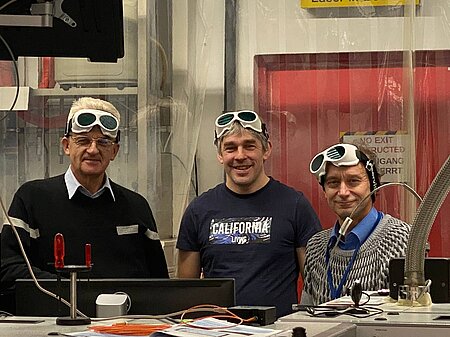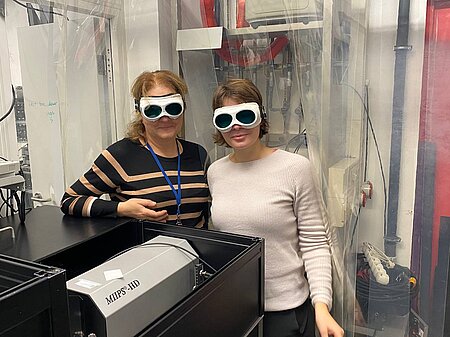The Max Born Institute hosts a team from Ukraine to explore novel ultrafast relaxation dynamics of molecules in solution
Recently, a team of scientists from the Center for Collective Use of the Femtosecond Laser Complex at the National Academy of Sciences of Ukraine, led by Dr. Natalia Kachalova, successfully applied for such an access grant through Laserlab-Europe. The research collaboration between Dr. Kachalova's group and scientists at the Max Born Institute (MBI) started in 2022 when Dr. Alina Khodko, a member of the Ukrainian team, joined MBI on a temporary contract to investigate ultrafast relaxation dynamics in aqueous solutions using the method of time-resolved photoelectron spectroscopy (TRPES). Thanks to the access grant, this collaboration has now been expanded, with several members of the Ukrainian team traveling from Kyiv to join the experiments on the ultrafast relaxation of Metanyl Yellow - an aminoazobenzine derivative, which serves as a testbed for developing the TRPES protocols in solution. Previous results suggest that the molecule undergoes rapid relaxation to the ground state, but that the pathways may be different for different hydration arrangements. The current campaign aims elucidating the influence of hydration.
The cooperation with the Max Born Institute and the Laserlab-Europe grant are vital opportunities for the continuation of the scientifique activities by the Ukrainian physicists, who are very grateful to the MBI for the opportunity to continue their research.
Questions about this article can be addressed to:

